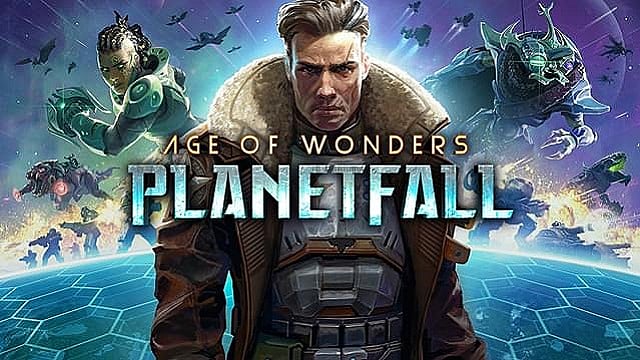

Clear your calendars, buckle up, and get ready for a long drop into orbit. Age Of Wonders: Planetfall is going to consume your life.
While the fan base may have been apprehensive about such an established fantasy franchise making the jump into hyperspace, but they needn't worry any longer. After having put a few dozen hours into the game, I can easily say the transition was smooth and worth the long wait between entries.
Even if you normally prefer strict medieval fantasy, endlessly re-playing Heroes of Might and Magic titles or the previous Age Of Wonders III, the updated mechanics found in Planetfall are worth experiencing, if for nothing more than expanding your horizons and taking a trip into the future.
How Going Sci-Fi Changes The Game
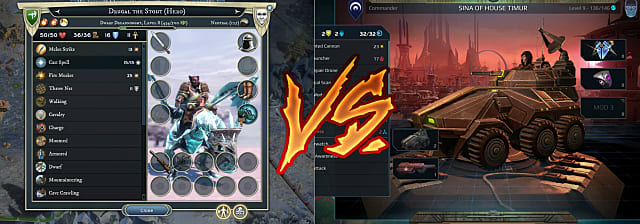 Screw your frost wyvern. I'll keep my TANK!
Screw your frost wyvern. I'll keep my TANK!
There's one question on the minds of all returning AoW players right now: just how different is Planetfall from the other games?
Thankfully, Planetfall employs the right amount of different-but-familiar gameplay to work for any player.
There are a handful of similar 1:1 holdovers from the previous game, like needing to research Aquatic Deployment before you can move armies onto water tiles. Everything else, however, is distinguished enough from the fantasy version that Planetfall doesn't just end up a re-skin of Age Of Wonders III.
Now there are Tactical Operations instead of combat spells, and spells that would have affected the game map are now split between Strategic Operations, like creating drones that hinder enemy movement in a province, and Doctrines, which provide global bonuses and affects.
Of course, the territory acquisition mechanics have been upgraded, and changes have come to resources and weaponry. You'll be calling in orbital strikes and placing recon outposts instead of lobbing fireballs or sending magic crows on scouting missions.
In either campaign mode or in random scenarios, maps now wraparound like a Pacman board since you are landing on and conquering spherical planets instead of traversing flat landmasses. That's a subtle change that reinforces the shift into planet-conquering, far-future gameplay.
Further, the soundtrack is more pulse-pounding than in previous entries. I wouldn't call it extreme metal by any means, but the rapid fire drum beats in manual combat make for significantly more exciting battles.
Between the soundtrack overhaul and the tactical battlefields filled with objects you can interact with, there's more reason to actually play each clash of armies rather than just hitting "auto" every time.
Aside from combat changes, there's a lot more going on with annexed provinces, such as how you interact with them and how they generate resources. These mechanics are befitting advanced technological societies that can generate huge amounts of power or grow biological food on a massive scale.
One of the most welcome tweaks arrives in the form of a handful of long-overdue quality of life upgrades.
The tedium of clicking through every event has been minimized, and now there's an icon clearly showing what a settlement is currently constructing and how many turns it will take to complete.
Long story short, if you've already mastered Age Of Wonders III, you won't have any problem figuring out this version of the game. Luckily, there's still enough new here to change the experience and keep the gameplay fresh.
Planetfall Factions And Gameplay
So how many factions can be played, and how do they differ from one another?
Another area in which Planetfall really shines, there are six strong, main factions to choose from, along with a variety of minor NPC groups to interact with that feature their own unit types, from the degenerate human Spacers to the mechanical AI collective, Autonom.
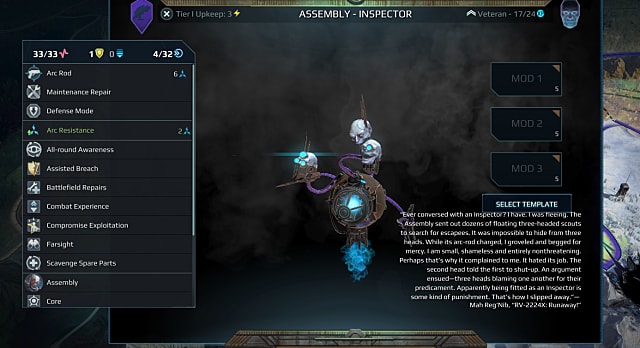
These are the factions you can pick as of launch:
- Vanguard: Rough and tumble human survivalists who can drop drones and turrets but otherwise use standard firearms and laser weapons.
- Kir’Ko: Psionic insects focused on rapid population growth and working in tandem during battle with swarm abilities.
- Dvar: Thrifty miners focused on explosives, area of affect attacks, and terraforming mountain terrain.
- Amazon: Beast riders focused on biological weapons, laser attacks, and using forest terrain.
- Syndicate: Decadent criminal houses that use arc and psi weapons, ignore morale penalties through slavery, and focus on stealth and information gathering.
- Assembly: Cyborgs that break down and reassemble human flesh, with a focus on arc weapons and faster research.
Although the Dvar are clearly space dwarves, the rest of the factions aren't just obvious analogs to the fantasy version of the franchise, and that's a huge plus that makes the game more exciting for returning fans.
The Vanguard is probably the easiest faction to pick up and play, since they are so strongly focused on military conquest and can pump out a steady stream of useful ranged units.
That being said, my personal favorite is easily the Assembly at the moment. Their creepy, death-and-resurrection focused cyborgs that use the body parts of the fallen to heal themselves and craft new troops is very compelling. It's a sneaky way to get necromancers in sci-fi game, but Triumph makes the faction feel significantly more futuristic.
No matter what race you go with, you'll interact with other NPC factions much more often than in the previous game, and in some brand-new ways, too.
NPC factions with which you aren't actively warring request tributes of you much more often than before (probably to a degree that needs to be scaled down in a patch) but there's a two way street there.
You can now spend a new resource called Influence to buy units, items, and technology from allies. The more you buy, the more they like you and the more often they give access to higher quality inventory. Staying on good terms with your neighboring communities can be more lucrative than outright conquering and absorbing them.
Every faction is strongly represented by its roster of heroes. While there are fewer item slots for your heroes than before (since they aren't wearing helmets, magic rings, and so on), there's much more flexibility in what abilities you get by swapping out items and placing modifications.
Here's the big twist: you can apply these mod changes to any units,not just heroes. Want a melee skirmisher that deals bleed over time effects and can heal other units? Prefer a sniper with a high critical hit chance and more defense than normal? No problem, just spend some energy and cosmite to apply whatever mods you've researched.
The best part? The UI automatically creates a template anytime you put a new mod combination on a unit, so you can then create new instances of that unit with those same mods already applied, rather than having to manually add them anytime you produce new armies.
While combat remains a big focus no matter what faction you choose, there's now greater choice in how you want to tackle missions — via diplomacy, exploration, or military conquest — with rewards and quests available depending on which team on the map starts down which path first.
Taking a cue from Civilization, there's also now a branch of the research tree that lets you win randomized maps without military conquest at all. So long as you can be a good neighbor for a set number of rounds and keep diplomatic relations strong, you can unify a planet without first burning it all to the ground, which offers up a very different way to play random Age Of Wonders scenarios.
The Bottom Line
Pros:
- Updated graphics and a host of quality of life changes
- The sci-fi setting works amazingly well with Age Of Wonders gameplay
- Distinct starting factions and more options to decide how you want to play any given map
Cons:
- The story and dialog are pretty hit or miss
- Some resources are still clearly better than others, so a few branches of the research tree aren't going to be used often
Campaign or random map, cyborg necromancers or dino-riding amazons, military conquest or diplomatic unification: there's just a ton to do with Planetfall, and the missions are lengthy and meaty enough to keep you playing for hours. Taking the cautious defensive route, going for diplomacy, and completing all the side quests, it took me 69 turns to complete the first mission.
Of course, in a game this huge, there will be some problems, and I do have a few minor complaints with Planetfall. Notably, some resources and abilities clearly outpace others. You always need more energy, so its far more useful to focus on upgrades that increase that resource as opposed to anything else.
Although its not a big enough deal to distract from the gameplay, the story and dialog aren't anything to write home about. The missions occasionally get silly or are too on the nose, and Triumph shows a weird obsession with evil, genetically modified penguins that some will love and others will get annoyed by fairly quickly.
That being said, the core of the game is rock solid, and its replay value is high. Planetfall even has a mods tab as soon as you launch the game, so clearly that side of the community is being well supported.
Simply put, Planetfall accomplishes everything it set out to do, and between the campaign, randomized scenarios, and the upcoming mod onslaught, I'm expecting to get hundreds of hours of play here in the coming years.
[Note: A copy of Age of Wonders: Planetfall was provided by GoG for the purpose of this review.]
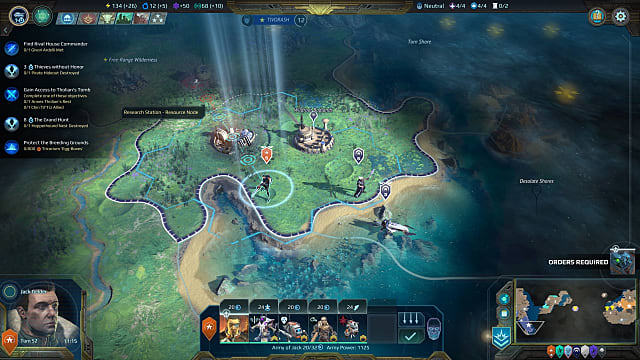
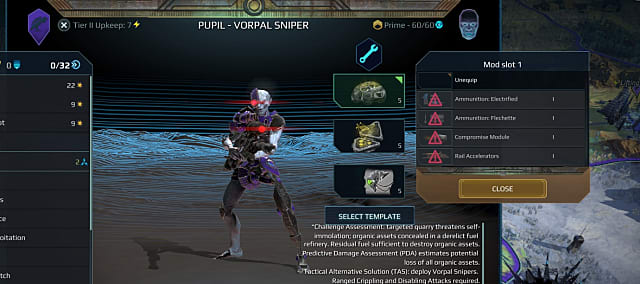
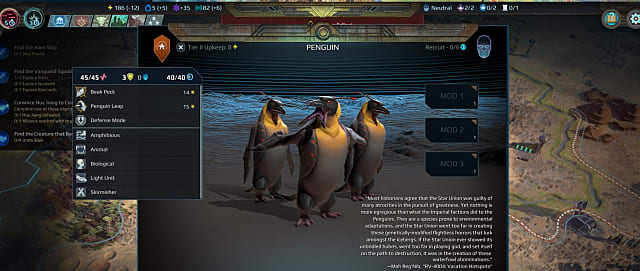
0 comments:
Post a Comment